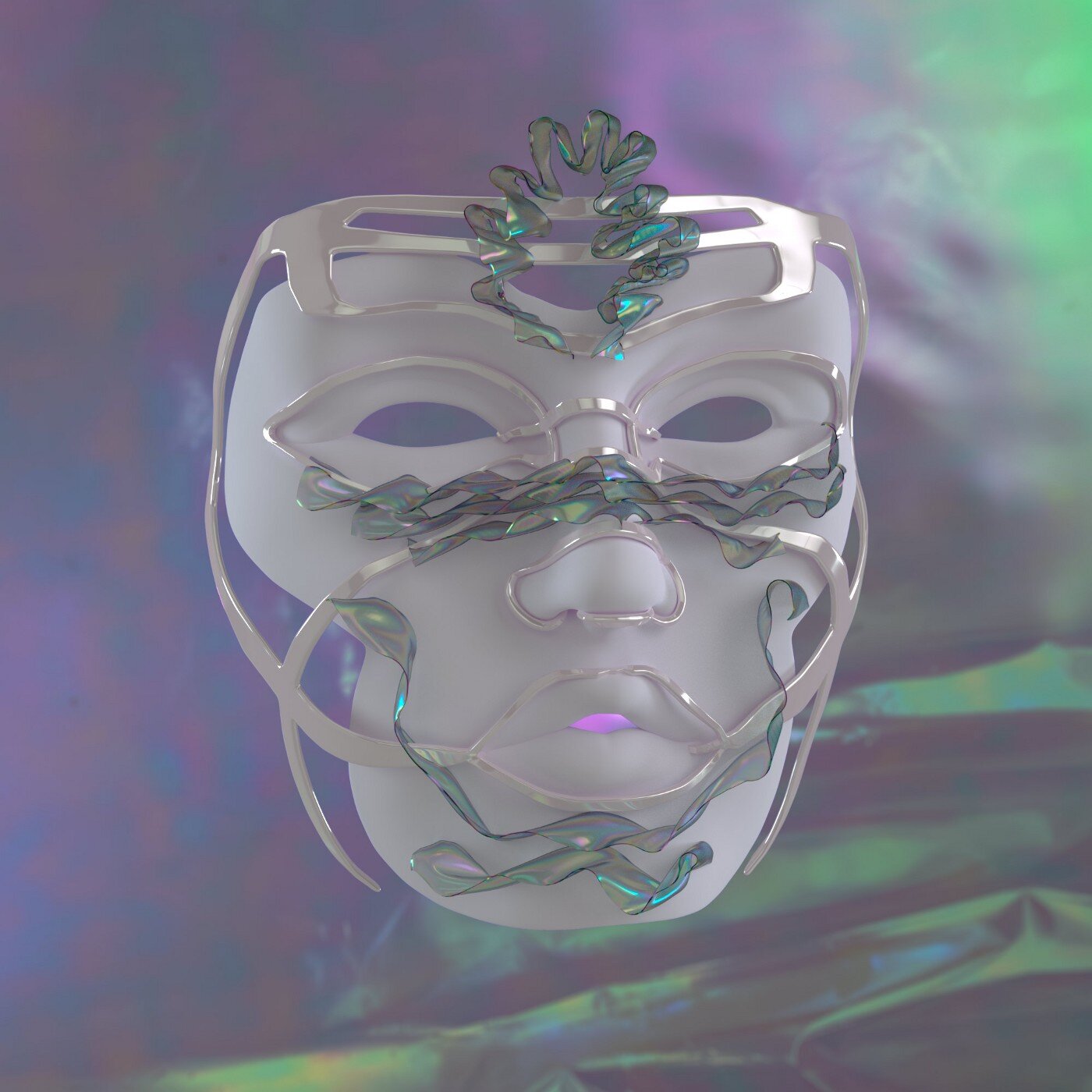Beauty 2.0: Ines Alpha
This article originally appeared in Dazed Magazine
Image by Ines Alpha
Where are we? We’re at the edge of the cosmic pool. Our toes are dipping into the waters of this sub-existential world. But some of us are diving straight in as if it were the most natural thing to do. Ines Alpha is one of them.
Ines Alpha, is a French 3D artist who’s dive into the digital streams of CGI creates ripples of hyper-aestheticised makeup looks that gracefully don the faces of those who inspire her. From Ellen Sheidlin (@sheidlina) to Salvia (@salvjiia) and Tiggy Thorn (@tiggythorn) — Ines’ glass of water is neither empty nor full it is brimming with an ocean of creativity that is about to force itself tsunami-style into our little world. Collaboration with other artists is imperative for Ines: “I like to work with other people. Their faces inspire me, their visual features and graphic universe inspire me, the way they dress and present themselves to the world, sometimes it’s their beauty, sometimes it’s something I really can’t explain.” Perhaps, one can’t explain it fully because, like the riddle of existence, this ‘something’ hovers precariously between states and, thanks to her surreal 3D makeup techniques, is now even harder to pinpoint. Is 3D makeup ‘makeup’? Or is it a cluster of digital particles shaped makeup-wise? Yet to Ines, makeup, irrespectively of whether it is computer generated or real, has “always been blurring the lines between reality and surreality.” Ines asks us to look at ancient civilisations and reminds us that makeup has been a “ritual that has been here for thousands of years. It is present in every culture. It is part of our reality.” A reality that she believes we are too quick to judge superficially, one that we haven’t even dug into and uncovered completely yet: “what we make of reality is too limited, that’s why people call ‘surreal’ things that in actuality are natural human things to do, like transforming oneself.”
Image by Ines Alpha
If what we think is surreal is actually real then this makes me think: did we invent this digital world we now bask in or have we merely discovered it? What is natural and what is invented? To Ines, it is not about separating one state from the other, rather, she is interested in the transformation that takes place, “transformation is a key aspect of life. Without transformation, everyone is trapped in an eternal linear self.” Rather than seeing this transformation as something alien and external to us, Ines believes it is only via the process of change that one can fully hold a grasp on reality and oneself and believes that “makeup is an easy way to give life to other versions of yourself.” This tailor-made 3D makeup transformation, inspired by the person’s art, style and personality, aims to reveal these multifaceted versions of the self and perhaps help one find new uncharted beauty territories and discover sides of themselves previously unseen: “one of the best moments in my work is when I get to see or read the reaction people have after seeing their faces with the 3D makeup on.” The transformation thus becomes a ritual, a rite of passage between all the different sides one unearths when experimenting with their beauty making it even “more magical than a traditional cosmetic transformation.”
Whilst we tend to view technology and this ‘digital world’ as a separate ontological entity to reality, Ines reminds me that if anything, this virtual world we’re now swimming in, is nothing but an uncharted reality, not too dissimilar to when we discovered that fire could be created from rocks and that distant planets could be found through convex glass lens. Technology has always allowed us to unearth something new about reality, but as Ines aptly concludes, “we have the technology, we have the science — but cultural modes evolve less rapidly” and so just like Galileo ended up being condemned for his discoveries concerning the reality of the universe, so do current visionaries who push the boundaries and stretch the comfortable limits of what is considered ‘normal’ and ‘authentic’. “I think technological advances are awesome!” exalts Ines, “I like the fact that design also gets better and everything becomes more accessible.” Tutorials, 3D softwares and online forums, but even free platforms such as Wikipedia, have brought education to the masses — anyone can now learn a new language such as coding or have access to historical databases. Never has this amount of information ever been so within reach. It is now down to us, to want to use it — not merely to sustain this reality, but rather to keep unpeeling more and more hidden layers.

